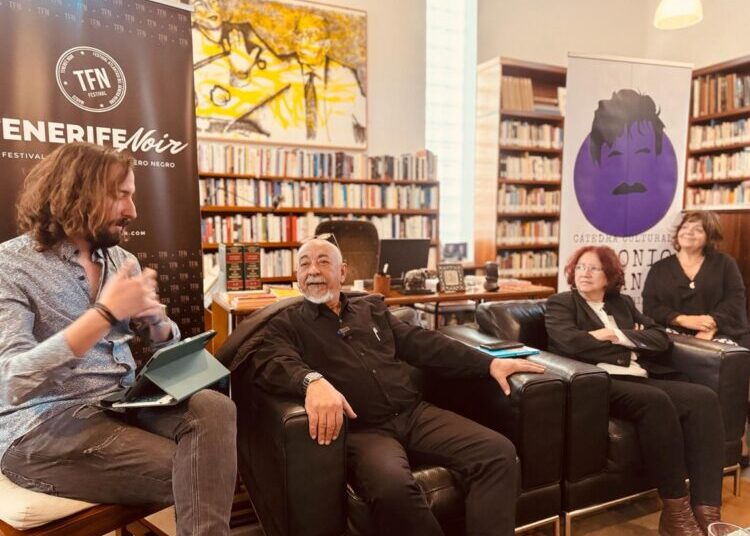Leonardo Padura stated this Thursday that he believes that “there is historical fatigue in Cuba” and he hopes that “there will not be a repressive response” from the government towards the demonstrators who protested in his country due to electricity and food problems.
Padura, Princess of Asturias Award for Literature, stated this at a press conference on the occasion of his participation in various activities organized by the Mario Benedetti Center for Ibero-American Literary Studies of the University of Alicante (Spain).
https://twitter.com/ipscuba/status/1770101049900097822
Regarding the protests registered in Cuba due to power outages and food distribution problems, the writer clarified that he wanted to be cautious because they occurred while he was outside his country, since he is currently touring Spain to participate in different events.
“Cries for freedom were also heard” in those demonstrations, something that “is important and cannot be ignored,” said Padura, who highlighted that “the crisis that is being experienced in Cuba” in the last two or three years also has to do with emigration.
According to Padura, 650,000 Cubans have entered the United States through illegal channels in the last two years, a “very representative” figure for Cuba, with a population of eleven million people.
“This journey to the United States is made on many occasions” through Nicaragua, Mexico, the “coyote route,” and “can cost up to 10,000 dollars” and “many people have sold everything they had in Cuba” to do so, the writer indicated.
Now “hunger and need have come together, as the saying goes, and this explosion occurred.… They are manifestations of a process that I have been describing in my novels for many years” and “that I have called historical fatigue,” he stated.
“People deserve to live better after so many sacrifices and I hope that there is no repressive response from the Cuban government and State with these protesters,” he stated, before remarking: “What is evident is that the Cuban socio-political-economic system needs changes.”
On the other hand, Padura announced that next September he will publish a new book that “is a kind of essay, but also a bit of recovered memory” about his “belonging to the city of Havana” and his personal connection. It is, he specified, an essay interspersed with fragments of his novels and a compilation of his journalistic texts.
He also announced that he began writing a new novel, of which he did not want to give many details, but clarified that its protagonist is not his famous Mario Conde, the detective in his police works.
As for Mario Conde, he reiterated that it helps him “try to understand the Cuban reality, which not even God understands.”
Regarding the creative process in Cuba, the author of works such as The Man Who Loved Dogs or Like Dust in the Wind acknowledged that “many people, in order not to be censored, start by censoring themselves” because their work could be canceled.
“I believe that everyone thinks freely what they want, but above all when it comes to disseminating that expression is where the censorship mechanisms begin to work” and a “possible subsequent cancellation,” he said.











Better relations with western nations would be a bad move. They are exploiters and toxic. Membership in BRICS could help a lot.